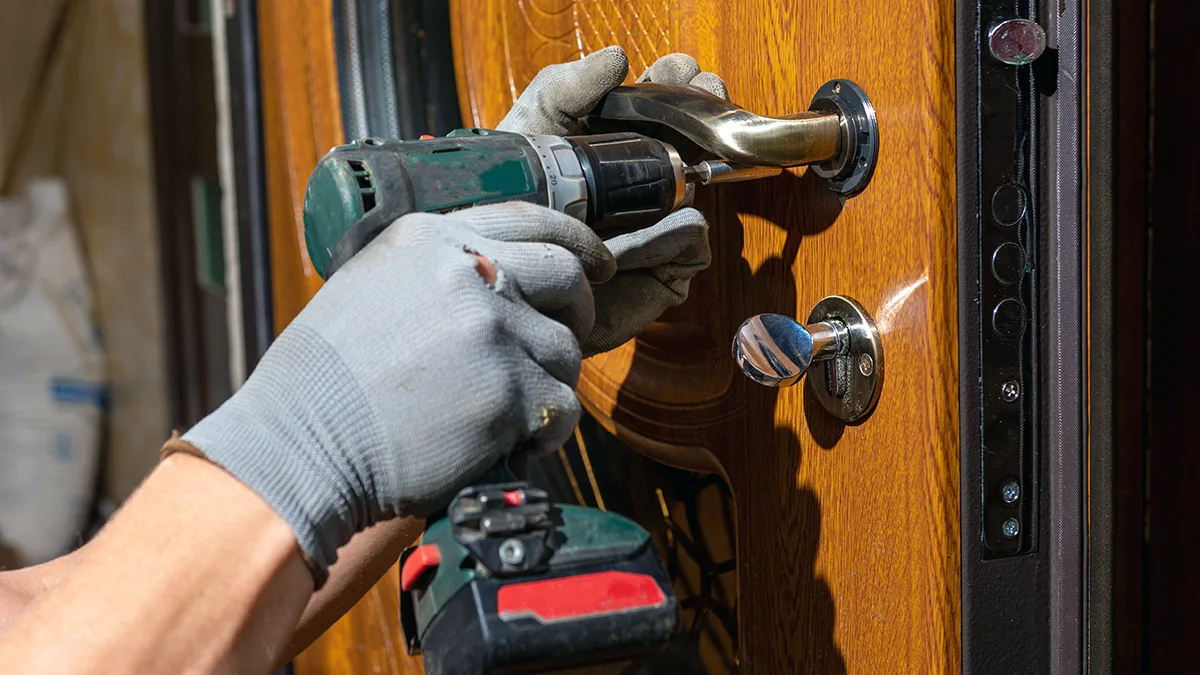Security Checklist for Your London Business Premises. In today's rapidly evolving landscape, ensuring the security of…
Master Keys to High-Security Keys: A Locksmith’s Comprehensive Overview
Master keys to high-security keys: A locksmith’s comprehensive overview. Understanding the myriad of key types is fundamental for any locksmith aiming to deliver top-notch services and solutions to their clientele.
From the ubiquitous house keys to the sophisticated high-security and electronic variations, locksmiths must be well-versed in a spectrum of key designs, each tailored to distinct lock mechanisms and security requirements.
Master Keys to High-Security Keys
This comprehensive overview will delve into the diverse key types a professional locksmith should master, the corresponding locks they integrate with, and the critical role of key duplication and security features in safeguarding residential and commercial properties.
By equipping themselves with this knowledge, locksmiths can refine their expertise and foster secure environments for their customers.
Key Types Every Locksmith Should Know
Traditional House Keys
Traditional House Keys are the most common and recognisable form of key. Typically, these keys are cut from metal and fit into a corresponding pin tumbler lock.
The key has a series of notches or grooves that align with the pins within the lock’s cylinder, enabling the lock to turn and grant access.
Understanding the intricacies of these keys is crucial for any locksmith, as they form the foundation of many locksmith services.
Often, these keys are used in residential properties and are the primary means of securing front and back doors.
Familiarity with traditional house keys also aids in key duplication processes, which is a staple service for both residential and commercial clients.
Ensuring that these keys are properly cut and maintained can significantly enhance the security features of any property.
Master Keys
Master keys are a step above traditional house keys in terms of complexity and utility.
Designed to work with multiple locks within a master key system, these keys provide access to several locks that each have their own unique keys.
This makes them particularly valuable in settings such as apartment buildings, offices, and hotels where multiple access levels are necessary.
For locksmiths, mastering the creation and manipulation of master keys is essential.
These systems rely on a combination of standard and master pins within the locks, allowing the master key to unlock them all.
Understanding the lock mechanisms involved and the intricacies of key duplication for master keys can significantly enhance a locksmith’s service offerings.
Proper implementation of master keys can also improve the security features of commercial properties, providing a balance between accessibility and security.
High-Security Keys
High-security keys are designed to offer enhanced protection against unauthorised access and tampering.
These keys often feature intricate designs and advanced security features such as sidebars, dimples, and unique cuts that work with specially designed lock mechanisms.
For locksmiths, understanding high-security keys is crucial for providing top-tier locksmith services.
These keys are typically used in commercial properties, government buildings, and high-value residential areas where standard security measures are insufficient.
Additionally, high-security keys are often patented, making key duplication more controlled and limiting the risk of unauthorised copies.
Mastery of high-security key systems requires a deep understanding of their unique lock mechanisms and the specific tools needed for key cutting and duplication.
By offering expertise in high-security keys, locksmiths can significantly enhance the security features of their clients’ properties, ensuring peace of mind for both residential and commercial customers.
Advanced Lock Mechanisms
Electronic Keys
Electronic keys represent a modern evolution in security technology, offering a level of convenience and control that traditional keys cannot match.
Utilising electronic chips and digital signals, these keys interact with electronic locks to provide access.
Common examples include key cards, fobs, and smart keys, often used in hotels, office buildings, and vehicles. For locksmiths, staying abreast of electronic key technology is crucial as these systems become increasingly prevalent.
Unlike physical keys, electronic keys can be programmed to offer time-specific access and can be deactivated remotely, enhancing security features significantly.
Understanding the programming and troubleshooting of electronic keys is essential for any locksmith aiming to offer comprehensive locksmith services.
Electronic keys also reduce the need for key duplication, as access rights can be easily modified without physical rekeying.
Offering expertise in electronic keys allows locksmiths to cater to a modern clientele seeking advanced security solutions.
Key Duplication Techniques
Key duplication is an essential service that every locksmith must master.
This process involves creating an exact replica of an existing key, which is crucial for both residential and commercial clients who require spare keys.
There are various techniques used in key duplication, ranging from manual key cutting to sophisticated electronic key cloning.
Traditional mechanical key duplicators work by tracing the original key’s pattern onto a blank key, while more advanced machines use laser technology for higher precision.
For high-security keys, special equipment and authorisations are often required due to their complex designs and security features.
Understanding the nuances of different key types and their corresponding lock mechanisms is vital for accurate duplication.
By mastering key duplication techniques, locksmiths can provide reliable and efficient services, ensuring that their clients have the necessary backups for any situation.
This expertise not only enhances trust but also underscores the locksmith’s role as a dependable security provider.
Security Features in Modern Locks
Modern locks come equipped with a suite of advanced security features designed to thwart unauthorised access and enhance property safety.
From anti-pick pins and drill-resistant plates to biometric recognition and electronic authentication, these features significantly bolster the effectiveness of lock mechanisms.
Locksmiths need to be well-versed in these technologies to provide comprehensive security assessments and recommend appropriate solutions to their clients.
High-security keys often accompany these locks, featuring unique designs that offer additional layers of protection.
Many modern locks also incorporate smart technology, allowing users to control access remotely and receive alerts on attempted breaches via mobile devices.
Understanding how these security features work, and how they can be integrated into existing systems, is essential for a locksmith.
By offering expertise in modern lock security features, locksmiths not only enhance their service offerings but also build trust with clients seeking robust security solutions for their residential and commercial properties.




Comments (0)